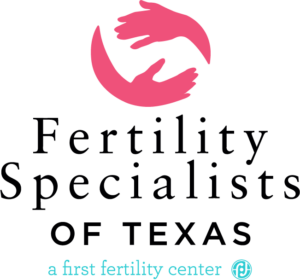LGBTQ fertility options are helping people everywhere start and grow their families
 Adoption is a beautiful thing, but many people long to share a biological connection with their child. This is especially true among many members of the LGBTQ community. Thanks to advances in reproductive medicine, we have more effective LGBTQ fertility options than ever before.
Adoption is a beautiful thing, but many people long to share a biological connection with their child. This is especially true among many members of the LGBTQ community. Thanks to advances in reproductive medicine, we have more effective LGBTQ fertility options than ever before.
Our Dallas-Fort Worth fertility center proudly welcomes any person who is interested in LGBTQ family building. From the first appointment to the day we transition your pregnancy care to your OBGYN, our team will be there to support you through every step of the way. This includes helping you select the best family-building options for you.
What are the different LGBTQ fertility options?
Just as the LGBTQ community includes many different sexual orientations and gender identities, LGBTQ fertility options include many different treatments.
Gay fertility options consist of in vitro fertilization (IVF) with egg donation and gestational surrogacy. An egg donor and a surrogate will help a single man or a gay couple welcome a baby that contains the DNA of one of the fathers.
Lesbian fertility options include a wide range of treatments. The most basic is intrauterine insemination (IUI) with donor sperm. The more advanced options are IVF with donor sperm and reciprocal IVF. The key difference is that traditional IVF with donor sperm involves just one woman. In contrast, reciprocal IVF has one woman provide her eggs and the other carry the pregnancy.
Transgender fertility options vary depending on a person’s fertility and where they are on their journey to transition. In some cases, patients will freeze their eggs or sperm before transitioning. In other cases, patients may have to get support from treatments like IUI or IVF with or without options like donor sperm, donor eggs and surrogacy.
Getting fertility testing is the first step of LGBTQ family building
Before our Dallas-Fort Worth fertility center team makes any treatment recommendations, we will order fertility testing. This testing may consist of semen analysis, bloodwork, ultrasounds, an HSG, or even minimally invasive surgery. Reviewing medical history and performing a physical exam is also important before recommending LGBTQ fertility options.
Armed with the test results, our doctors will move forward to create customized treatment plans that make parenthood possible for LGBTQ parents. If you’d like to learn more, we invite you to contact us and schedule an appointment.
